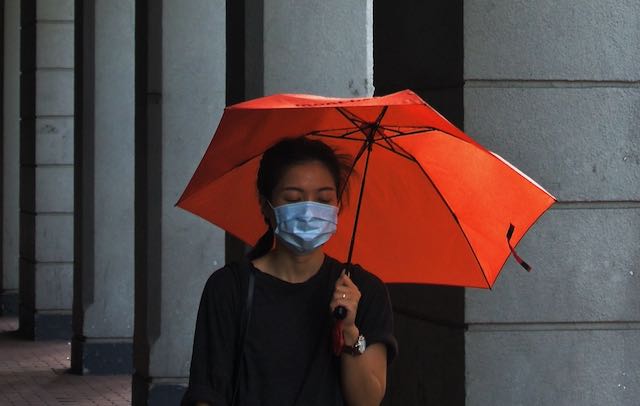China and the world are mourning Dr. Li Wenliang, one of the doctors who attempted to spread an early warning of the Wuhan coronavirus and were reprimanded and detained by local officials in early January. Dr Li, who was only thirty-four years old, died of the virus in the wee hours Friday morning.
Upon hearing of Dr. Li’s death, Wuhan residents gathered at Wuhan Central Hospital to honor him with flowers, photos and heartfelt sentiments. China’s chief epidemiologist has praised the whistleblower doctors. China’s highest court also recognized that the doctors were trying to prevent a bigger crisis, and reprimanded local officials who tried to muzzle them. The country’s National Supervisory Commission is investigating.
The soul-searching that Dr. Li’s death has prompted is healthy and important. But China is far from alone in having fallen short in giving whistleblowers their due, and it would be a mistake to miss the opportunity for everyone, no matter what their nationality, to reflect on the importance of early warnings and question how good a job we are doing.
Two US political examples -which also happened to take place last week- drive this point home. First, the Iowa caucuses were a disaster in part because people had failed to properly test a new app that delayed results reporting. Did anyone sound the alarm there? If so, why weren’t they listened to? If not, why not? This was not dissimilar from the crash of the healthcare.gov site when Obamacare was launched, but the lesson of the importance of robust testing apparently was lost.
And, in the wake of the impeachment trial, the U.S. White House retaliated against public officials for having testified. Former U.S. ambassador to the European Union Gordon Sondland, along with Lt. Col. Andrew Vindman and his brother at the National Security Council unceremoniously removed from their posts in retaliation for their testimony. No matter which party you belong to, this kind of behavior should be of great concern if you care about people not being afraid to tell the truth.
So what lessons should we all learn so that Dr. Li’s death will not have been in vain?
First, whistleblowers are all too likely to pay a high price for doing the right thing. Worse, the odds of people listening and acting on what they have to say are too low. It’s time need to celebrate and elevate whistleblowers and take to task those who vilify them.
Second, people and organizations are overly cautious about sounding warnings for fear of raising false alarms. If someone raises the alarm in such a way that it prevents a crisis, the crisis averted is abstract, so they do not often get the credit that they should.
When I lived in New York City, the city’s response to storms was a good example of this. Hurricane Irene didn’t live up to the dire warnings issued as it approached. That made too many people less cautious than they should have been as Hurricane Sandy barreled toward the city not long afterward. We need better ways to imagine and recognize the damages we avert by being prepared even when it turns out the danger didn’t fully materialize.
Which brings me to my third point: regular warnings –and taking them seriously– can help us to develop the kind of ingrained preparedness habits that would benefit us all. Do too frequent warnings make us complacent? Not necessarily. They can lead to good habits. Here in the Midwest, snow days and tornado warmings are great examples of precautions that people know to take. Schools will never know if a child might have gotten frostbite or the school bus might have had an accident on a snow day. But they don’t take the chance.
To be sure, I’ve learned to tune out the severe weather alarm test at 10am the first Tuesday of the month. But that doesn’t mean I don’t appreciate it. And reminders to be more careful about safety have their place. Done thoughtfully, they can be effective.
Personalized variations are the most effective, particularly those with a sense of humor. Those ubiquitous signs on bathroom mirrors reminding employees to wash their hands are a great example. The grocery chain Trader Joe’s does a great job with its folksy, whimsical signs. And then there’s the bathroom sign meme that has been circulating lately amid the transgender culture wars in the United Statses. It features icons of a man, woman, half of each, Martian, and so on, with the message, “Whatever. Just wash your hands.”
And, in fact, those hand washing habits come in mighty handy in face of health threats like the coronavirus. The strategies that the Centers for Disease Control recommends for preventing its spread are staggeringly simple, including washing hands frequently, avoiding contact with sick people, cleaning and disinfecting regularly, and wearing a face mask if you are sick or a health worker or caregiver. (Note that they do not recommend that others wear a face mask.)
Let’s celebrate Dr. Li’s life and courage by embracing early alarms and good prevention habits.
And let’s find more ways to celebrate the early warners, the ones who sound the alarm when potential threats are more manageable, to keep them from getting worse and getting out of hand.
This article is part of my new LinkedIn newsletter series, “Around My Mind” – a regular walk through the ideas, events, people, and places that kick my synapses into action, sparking sometimes surprising or counter-intuitive connections.
To subscribe to “Around My Mind” and get notifications of new posts, click the blue button on the top right hand on this page. Please don’t be shy about sharing, leaving comments or dropping me a private note with your own reactions.
- The Gray Rhino Wrangler on Substack - January 1, 2025
- Gray Rhino Risks and Responses to Watch in 2024 - January 10, 2024
- In the Media 2023 - December 31, 2023


